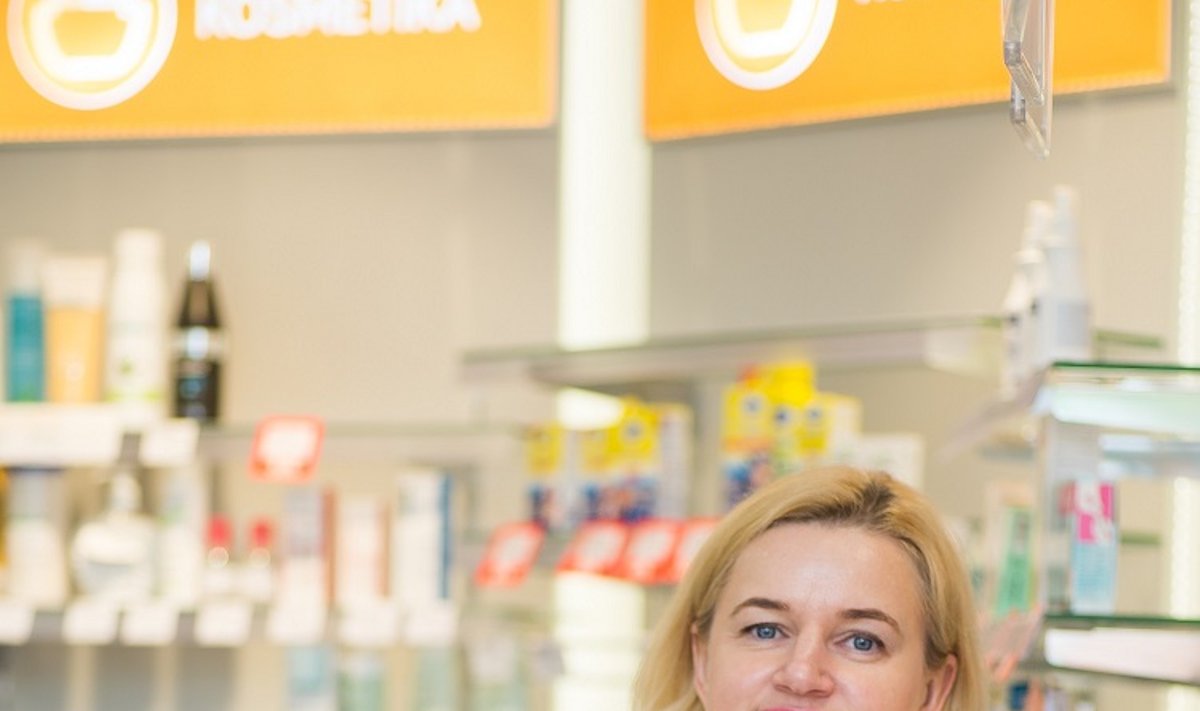"When people feel unwell, they usually look for an explanation for one symptom online failing to consider all changes of their health condition and only take it to heart when they see the word "cancer". Then, scared, they rush to get medicine for a disease which perhaps they do not even have. They demand a specific medication discovered online which is completely incompatible with the medicine they are already taking or which neither treats the deteriorating condition nor the feared disease, or worse, they resort to self-medication," said Edita Stankevičiūtė, the Pharmacist and Head of "Gintarinė vaistinė", about the most frequent mistakes.
The specialist notes that young people always emphasise that they have found some information about a certain medication on Google or another search engine, while older people google not only online but also in reality: they listen to the advice of their neighbours, relatives or friends and even share medicine.
"When people find out that their acquaintances have the medicine they supposedly need, they do not think twice before taking in. This should be avoided not only because the medicine may be unsuitable or inefficient but, first of all, because you do not know in which conditions that friend or neighbour of yours stored the medicine. The effect of an improperly stored medicine may change in an unpredictable way and result in stronger side-effects, changed breathing or heart arrhythmia," the pharmacist warned.
Another consequence of googling is reducing the dosage: people feel better after taking the medication prescribed by a doctor or pharmacist, and discontinue the treatment as a result of reading some unreliable information.
"This is very common in relation to antibiotics. When people fall ill with a serious case of flu or a similar disease, they do not complete their course of antibiotics treatment and save them for the future. As they feel the first symptoms of a cold, they often resort to their stock, and this way reduce resistance of the bacteria of their organism to medicine, thus aggravating their condition. Colds should be treated with non-prescription medication after having carefully studied their active substances: sometimes people who normally take paracetamol discover a supposedly more effective medication online and rush to buy it, even though the active substances of that medicine are the same as in paracetamol. This could create the risk of overdosing," added the pharmacist of "Gintarinė vaistinė".
According to Stankevičiūtė, a single product able to treat a variety of diseases that is suitable for everybody does not exist. "If one type of medicine alleviates your headache effectively, it may have no effect on your colleague or family member whatsoever because of other medications taken concomitantly, their nutrition or lifestyle. Compatibility of medication, as well as the rules of nutrition and liquids taken with medicine are especially important in this case," reminded the pharmacist.
According to the specialist, a live contact with most customers at the pharmacy still has more advantages, despite the fact that remote diagnostics systems have been making their way in the world successfully.
"I believe that computer programs can diagnose diseases and choose suitable medication effectively; however, this can take place with involvement of professional equipment or under the supervision of doctors or pharmacists only. Uncontrolled self-diagnostics followed by self-treatment, as a rule, is always more harmful than beneficial. In order to be able to find the medication which is suitable for you using an online search engine, you need a lot of knowledge and proper interpretation of multiple factors. In other words, you need medical education and insights in the pharmaceutical market. If you do not have all this at your disposal, leave the diagnosis to medical professionals and compatibility of medications – to the systems of "Gintarinė vaistinė," advised Stankevičiūtė.
